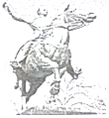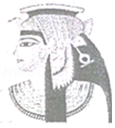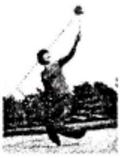In today's world, almost everyone knows that air pollution and water pollution are harmful to people's health. However, not all the people know that noise is also a kind of pollution, and that is harmful to human health, too.
People who work and live under noisy conditions usually become deaf. Today, scientists believe that 10% of the workers in Britain are becoming deaf because of the noise where they work. Many of the workers who print newspapers and who weave cloth(织布)become deaf. Plenty of people living near airports also become deaf. Recently it was discovered that many teenagers in America could hear no better than 65﹣year﹣old persons, because these young people like to listen to pop music and most of pop music is a kind of noise. Besides, noise which is produced by jet planes or machines will make people's life difficult and unpleasant. It can make people ill or even drive them mad.
It is said that a continuous noise of more than 85 decibels(分贝)can cause deafness. Now the governments in many countries have made laws to control noise and make it less than 85 decibels.
In China, the government is trying to solve not only air and water pollution problems but also noise pollution problems.
(1)Scientists believe 10% of the workers are becoming deaf because of their noisy
workplaces.
A. in America
B. in China
C. in Britain
(2) will probably become deaf.
A. Workers who print newspapers
B. People who live far from airports
C. Students who like listening to soft music
(3)According to the passage, noise from jet planes or machines can .
A. make people sleepy
B. drive people mad
C. cause people to die
(4)The underlined word "continuous" means in Chinese.
A.正常的
B. 持续的
C.清晰的
(5)What's the best title of this passage?
A. Air Pollution
B. Water Pollution
C. Noise Pollution
WHICH FAMOUS PERSON IN HISTORY WOULD YOU LIKE TO HAVE MET AND WHY?
|
For me it would clearly be Leonardo da Vinci. I'd love to have met him. He was such a creative talent and not just an artist. He seems to have predicted a number of inventions that only came about hundreds of years later, like flying machines and so on. I' d like to tell him he really did see the future. Naomi, Chicago |
|
I'd choose Cleopatra﹣the last king of ancient Egypt(埃及). She is thought to have been very beautiful and is generally considered to have developed some really useful political alliances(政治同盟).Not many women were that powerful in ancient times. I'd like to have seen how she did it. Lucinda, Nairobi |
|
I'm Latin American, so I would name Simon Bolivar as the person I would like to have known. He's supposed to have been a very great, brave leader and is accepted to have helped achieve independence for several countries in Latin America in the nineteenth century. Patricia, Caracas |
|
I studied philosophy(哲学), so I would like to have spoken face﹣to﹣face with the Chinese philosopher Confucius. I'd like to have discussed with him his political philosophy and his idea about family values. He seems to have had a lot of respect for older people, and even though he lived over two thousand years ago, some of his opinions are still meaningful. Li Yun, Shanghai |
(1)Whose ideas about inventions have come true?
A. Leonardo da Vinci's.
B. Cleopatra's.
C. Simon Bolivar's.
D. Confucius'.
(2)Which of the following is TRUE from the passage?
A. Leonardo da Vinci invented a flying machine hundreds of years ago.
B. Lucinda would like to have met Cleopatra because she was pretty.
C. Simon Bolivar was a person who encouraged independence of women.
D. Li Yun would like to have talked with Confucius about his family values.
(3)In which part of a magazine can we read the passage?
A. Art.
B. Movie.
C. History.
D. Technology.




Are You Ready For High School?
If you can do these things by the time you go to high school, you'll get on well with others in high school.
(1)
A little respect (尊重) goes a long way. Don't help yourself to her personal things in the room, and let her know if you plan to treat friends there. If you don't feel like you're being treated fairly, have a talk face to face.
(2)
The first meeting with someone really does matter. To make an immediate connection, look a person in the eye and give a firm handshake. Keep eye contact while you're chatting and mention the person's name when saying goodbye.
(3)
One study found that holding something in can make you feel lonely and sad. So for your health and friendships, write down the secret in a safe place instead of talking about others in public.
(4)
If someone did something nice for you﹣a gift, some help, now's the time to take out your pen! Sending the person a handwritten note card within 48 hours afterward is a sign that you really have it together.
|
A. Keep a Secret B. Be the Best Roommate C. Make a Great First Impression (印象) D. Write a Fantastic Thank﹣You Note |
(5)Please give one more suggestion on how to get on well with others.(回答不多于5个单词)
Technology is everywhere. We see it any place we go and, in fact, almost all of us carry some piece of technology with us every time we leave the house. What I always forget, though, is just how useful and powerful technology can be when we want to help others.
There is not a single room in my house that does not have some electronic devices (设备)lying around in it. Whenever I am at home, I am almost always using at least one electronic device. If you walked into my living room on any given day, you would find that, first, I have the television on. At the same time, I usually have my laptop resting on my knee, or I will be using my mobile phone. Even when I'm not at home I am always using my phone, and at work or in cafes, I sit down and connect to the local wireless network on my laptop.
I must say that I waste a lot of time on the computer and the time I spend on it could be much better spent if I were to take up a little online volunteering.
The technology we carry about everywhere can have a great power to do good for the world and to help others and recently I discovered just how much online volunteering there is to do in the world. From using your language skills to do translations, to developing and managing projects and helping with IT work, there is so much that so many people can do to help people in their own countries and across the world. The United Nations, in fact, has a huge page with "Volunteers Recruited" on its website.
This work can support the poor and help charities who cannot pay for staff members. Many organizations only require you to work an hour a week﹣some even less. And the support provided by online volunteers can really help make a difference to those in need.
(1)From Paragraph 2, we can know that the writer .
A. uses technology a lot
B. works in a cafe
C. is a computer engineer
D. likes modern music
(2)The underlined word" Recruited" in Paragraph 4 means " ".
A. Ordered
B. Wanted
C.Visited
D. Warned
(3)In the writer's opinion, people should spend more time with technology.
A. working on computer programs
B. keeping the Internet safe
C. inventing electronic products
D. helping people in need
(4)What can be the best title for the passage?
A. Website Design
B. Internet Organizations
C. Online Volunteering
D. Online Translation
Every night in Jinan University in Guangzhou,a group of students plays diabolo (空竹) as a crowd watches on in amazement.
Chen Zhelun,25, a Malaysian﹣Chinese started the diabolo club, which helps to increase the popularity of this traditional Chinese game. He is one of many students expressing their interest in the country's cultural heritage(遗产)by starting clubs.
The diabolo, which came from China, is popular among Chinese living in Malaysia.
"We played diabolo from primary school onward. I thought I could find someone to play with in China, but only a few students knew about it. So I started a club to develop it,"says Chen.
To Chen's surprise, the old game has interested a huge crowd﹣ more than 1,000 students have joined the club.
"It keeps your body strong and it's fun," says Chen.
But some prefer quieter activities. Every weekend, one classroom in Shenzhen University is always crowded, but it's unusually silent. The members of Lanting Calligraphy Club are writing Chinese characters with traditional brushes.
Fan Dongling, 21, a student in Shenzhen University, says it's a shame that young people no longer enjoy the beauty of Chinese characters.
Although her club is quiet, Fan says it keeps members healthy, mentally and physically.
"Some students think traditional things are outdated. They like celebrating Western festivals like Christmas or Valentine's Day, but they seldom pay attention to traditional ones, "says Kong Yanquan, 21,a student in Guangxi University.
As head of the traditional Chinese local operas club, Kong plans to put modern elements (元素)into traditional culture to get students to join his club.
"I think it's everyone's duty to save and develop China's traditional culture among young people," he says.
(1)The passage is organized by giving three .
A.examples
B.tasks
C.lessons
D.speeches
(2)The underlined word "It" in Paragraph 6 refers to(指代) .
A. watching diabolo shows
B. playing diabolo
C. talking about old games
D. going to primary school
(3)It can be learned from the passage that Fan Dongling .
A. comes from Malaysia
B. is good at local operas
C. loves quiet activities
D. is interested in sports
(4)Kong Yanquan advises young people to .
A. practice writing Chinese characters
B. celebrate Western festivals
C. pay attention to traditional culture
D. make friends with the elders

17﹣year﹣old Brennan Agranoff, a colorblind boy, started his custom sock business in middle school,with a small loan (贷款) he got from his parents. Up till now, he has sold over ¥1 million worth of socks online in the last four years.
Brennan thought of the idea for his custom sock company at just 13years old. He was attending a high-school basketball game in his hometown of Sherwood. Oregon. and noticed that many kids his age were wearing the same white Nike sport socks. The boy told himself that if these white plain socks were so popular with kids, then some cool custom designs would surely be an even greater hit.
But the boy didn't tell his parents about the business idea immediately. He spent six months researching things like printing machines and technology and drawing up a business plan. Only when he had everything planned out did he ask his parents for a loan. "They thought the idea was a little out there." Brennan recently told CNN Money, but he kept pushing, and finally received a ¥3,000 loan to start his company. Then he began to work on his own designs. The fact that he was colorblind didn't stop him and he has created over 200 designs now.
Business was slow the first year, but then Brennan started pushing his HoopSwagg products heavily on the Internet. Orders soon started coming in large numbers, and HoopSwagg became a popular brand among custom sock lovers. Right now, his designs can be found on HoopSwagg website, Amazon and eBay.
Four years after starting his business, Brennan has achieved great success while balancing (平衡)school,house chores and his social life. And he says he loved every minute of it.
(1)The second paragraph mainly tells us how Brennan .
A. designed his custom socks
B. got his business idea
C. organized the basketball match
D. managed his company
(2)To start his business, Brennan .
A. bought some Nike socks
B. made a business plan
C. asked teachers for advice
D.got money from friends
(3)It can be inferred(推断) from the passage that Brennan .
A. got no support from his parents at all
B. stopped designing because of his eyes
C. was too busy to do house chores
D. enjoyed both his study and business
(4)Which word can best describe Brennan according to the passage?
A. Honest.
B. Kind.
C. Creative.
D. Helpful.